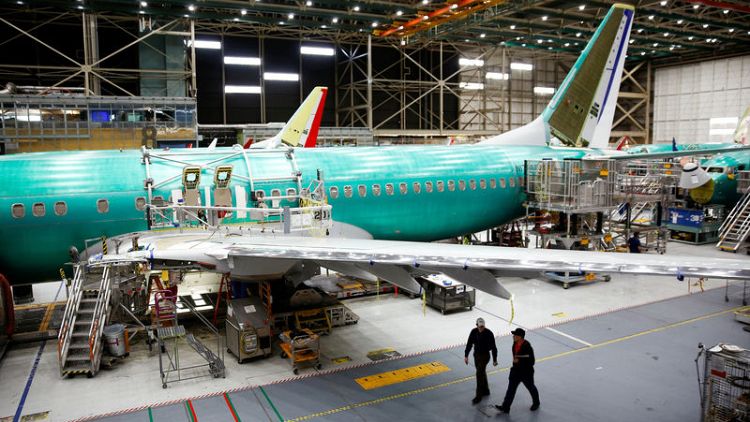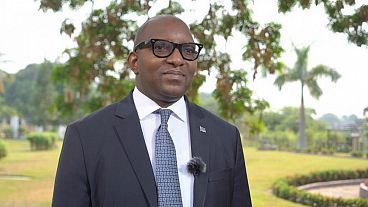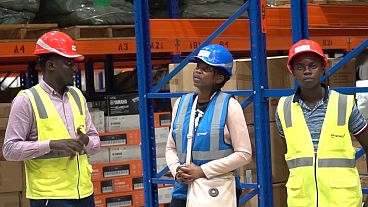By Christoph Steitz and Georgina Prodhan
FRANKFURT (Reuters) - TUI remains committed to its Boeing 737 MAX orders despite two fatal crashes that have led to the grounding of the plane worldwide and caused the Anglo-German tour operator to issue a profit warning on Friday.
TUI said its profit would fall by at least 200 million euros (172.16 million pounds) this year due to the cost of substituting planes, loss of business and lower fuel efficiency - further evidence of the financial impact of the two deadly accidents after warnings from North American airlines.
The holiday firm's shares fell to an all-time low.
Global airlines and travel groups have had to make contingency plans after 737 MAX planes were taken out of service following an Ethiopian Airlines disaster on March 10 that killed 157 people, five months after a Lion Air crash in Indonesia that killed 189.
Boeing is planning a software fix to address an issue that can arise when the MAX's anti-stall system, MCAS, repeatedly pushes the plane's nose down. The MCAS system is at the centre of safety investigations into the two crashes.
Based on feedback from Boeing and EU regulator EASA, the planes should be flying again in July, TUI's Chief Executive Friedrich Joussen told analysts on a call.
The grounding has led some airlines to question their commitment to the MAX, Boeing's fastest-selling plane and the latest version of its 1960s 737 workhorse, which offers significantly more efficient fuel use than predecessors.
But David Burling, TUI's board member responsible for airlines, said the travel company had "no intention" of changing its order for eight more MAXs on top of the 15 it already operates - one-tenth of its fleet.
CEO Joussen said: "We are saving $1 million per year per aircraft in fuel, but - and here comes the but - safety first."
TUI has little scope to cancel flights, as some airlines are doing, because the flights feed its hotel and cruise business.
It is leasing planes complete with crews to replace those due to have been flown by 737 MAXs at the cost of $1 million each per month, executives said, adding they had seen some tightening of the so-called wet-leasing market.
Bookings were down by 10 percent in major markets since the Ethiopian crash, Joussen said, adding he was "very certain" of receiving some compensation from Boeing, probably next year.
WARNINGS
Southwest Airlines on Wednesday became the first major U.S. airline to cut its financial outlook for the year after being forced to pull its fleet of 737 MAX planes, the world's biggest, out of service.
United Airlines and Air Canada have also warned of a hit to their business, with the Canadian carrier suspending its 2019 forecasts.
TUI said it now expected underlying earnings before interest, tax and amortisation (EBITA) to fall by 17 percent, having previously expected the figure to be on a par with the 1.18 billion euros generated in 2018.
It added that EBITA could even fall as much as 26 percent in 2019 if the planes remain grounded beyond the middle of July.
No report has yet been issued on the Ethiopian crash but preliminary findings may be published as early as next week.
Morningstar analyst Chris Higgins on Thursday reduced his estimate for how long the groundings would last to two months from three, based on details presented by Boeing of its proposed fix to the MCAS software.
"We've revised our base-case timeline for the groundings to around two months because this MCAS fix appears mature, the MCAS upgrade should only take one hour per plane, and the updates will not require significant training," he wrote in a note.
(Editing by Keith Weir and Mark Potter)



